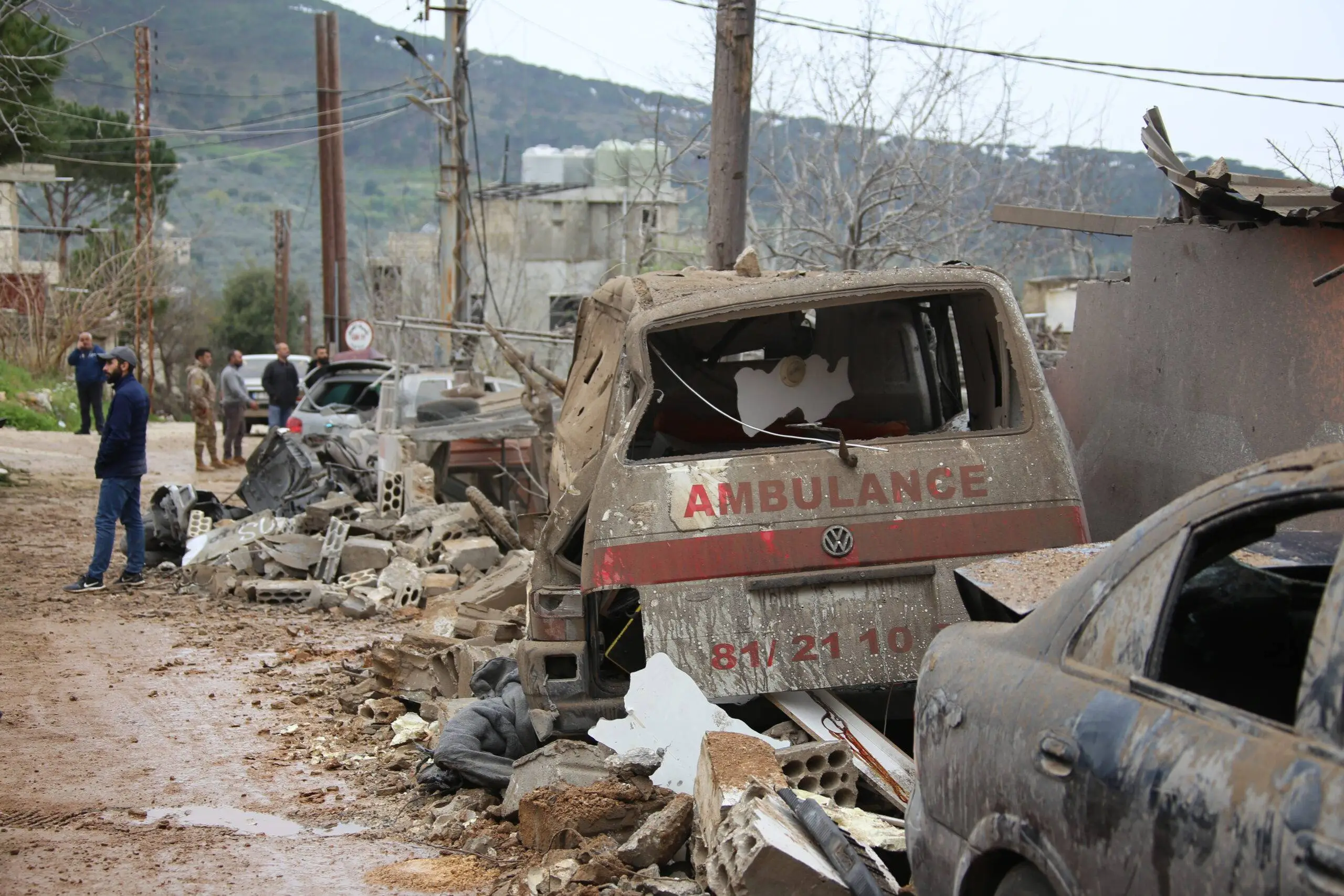On Saturday, an Israeli strike targeted a team of firefighters putting out fires ignited by Israeli raids in the town of Froun, within the Bint Jbeil district. The strike killed three Lebanese Civil Defense members and injured two others, with one in critical condition.
The victims were identified as Qassem Bazzi, Abbas Hamoud and Muhammad Hashem. This brings the death toll of paramedics and civil defense personnel to at least 25 since the start of the Israeli aggression on Lebanon.
Over the last two days, Israeli operations continued to cause damage in South Lebanon, with six injuries in the town of Khirbet Silm and four injuries as a result of a raid on the town of Hanin. A total of five injuries required hospitalization.
Meanwhile, Israel expanded the regional scope of its operations, with a whopping 15 airstrikes targeting the Masyaf arms production center in Syria, killing 14 people, including at least five civilians, and injuring 43 others.
It is not the first time that Israel targets the military research center, as airstrikes previously hit it in 2017 and 2022. The attack was launched from the direction of northwestern Lebanon.
Early Sunday, Hezbollah retaliated to Israel’s attacks, launching rocket fire towards a northern Israeli town.
Israeli Politicians Escalate their Rhetoric
Lihud MK and Knesset Foreign Affairs and Defense Committee member, Nissim Vaturi, claimed that the war with Lebanon is only “a matter of days”, and threatened that Beirut’s Southern Suburbs will “look like Gaza.”
On its part, Israel’s Channel 12 quoted a senior Israeli security official saying that “the campaign in Lebanon is getting closer, although the exact timing has not yet been determined.” The source also claimed that the collapse of ceasefire negotiations would directly trigger an all-out war with Hezbollah.
It is not the first time that Israeli officials and politicians escalate their rhetoric vis-à-vis Lebanon, with many similar claims taking place throughout the previous years and since 7 October, including promises to “raise Beirut to the ground”, “take Lebanon back to the stone age”, or similar assertions.
Ceasefire Negotiations Far From Making Progress
Reports suggest that the United States (US) might be interested in brokering an Israel-Hezbollah deal amid an absent Gaza ceasefire. The US has continually warned about expanding the conflict to Lebanon, and the Biden administration potentially hopes to delink the war on Gaza from Lebanon.
Israel does not seem to seek such delinking, as it has continually escalated strikes across the region, with analysis suggesting that the Israeli government is attempting to trigger an all-out war since it would legitimize its aggression and bring forward additional support from its allies.
On the other hand, Hezbollah announced that it would stop operations if a ceasefire in Gaza is attained, as the party’s Secretary General, Hassan Nasrallah, claimed that the opening of the Lebanese front was only meant as one to support resistance efforts in Gaza.
As such, beyond its recurrent obstruction of the ceasefire process, the Israeli government did not express any willingness to stop its aggressions on Lebanon, in fact only escalating its discourse. The populations of Lebanon, Gaza and the region end up under constant threat of Israeli strikes and operations for at least the near future.


